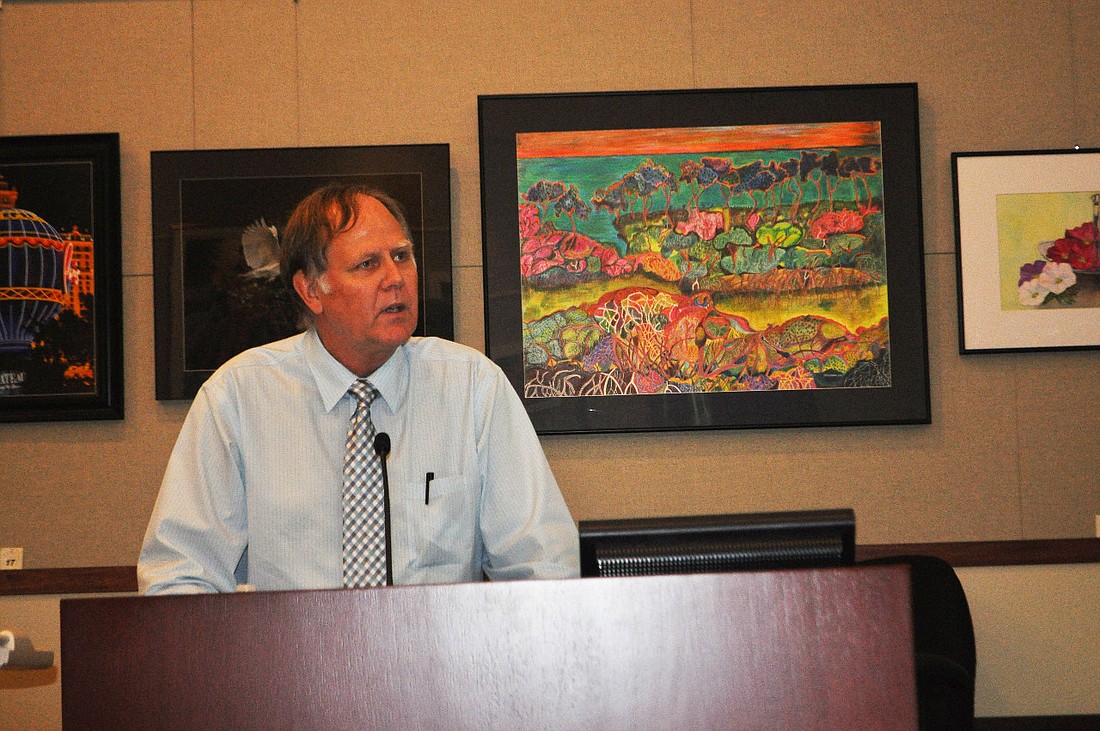- April 29, 2024
-
-
Loading

Loading

Scott Wierson, project manager for TE Connectivity Networks Inc.’s study of island-wide wireless communications, discussed solutions for improving service at the Longboat Key Town Commission’s Thursday, April 19 regular workshop.
But Wierson didn’t sound off on whether the north end’s wireless issues would be best solved by a cellular tower or small-cell technologies, instead making recommendations about each.
Wierson said that he believes the Longboat Key Public Works compound would be a more strategic location for a tower than the proposed Longboat Island Chapel site, because he believes it would better cover the entire north end.
Wierson presented data that estimated north-end coverage for a cell tower of varying heights at the chapel property:
A 60-foot tower yielded 2.1 miles of coverage. Coverage rose to 2.6 miles at 80 feet; 2.75 miles at 100 feet; 3 miles at 110 feet; 3.25 miles at 120 feet; 3.35 miles at 140 feet; and 3.5 miles at 150 feet.
Wierson said that the study will recommend an outdoor Distributed Antenna Solution (DAS) system as a small-cell technology. The system would require the instillation of multiple hub stations on FPL lines that would send signals through fiber-optic cables.
Wierson also discussed emerging technologies, such as the Alcatel-Lucent lightRadio, which could improve capacity but isn’t yet available.
Wierson estimated that a tower would be cheaper to construct, with costs estimated at $400,000, compared to $590,000 for a DAS system, but would come at a higher environmental impact. The DAS equipment would be approximately 38 feet high, compared to 150 feet for the proposed tower on the chapel property.
Alpha-Omega Communications Inc. owner Jim Eatrides and his business partner, Kevin Barile, president of the Tampa-based Ridan Industries II, spoke after the presentation and asked to review the findings and come back before the commission at a later date.
Eatrides told the commission that they disagreed with some study findings about the location of a cell tower or the development of a DAS system but were generally pleased with the study.
“For the most part, it confirms and validates the work we’ve done in the past four years about the problems we have here,” he said.
For more information, pick up an April 26 copy of the Longboat Observer.
Contact Robin Hartill at [email protected].